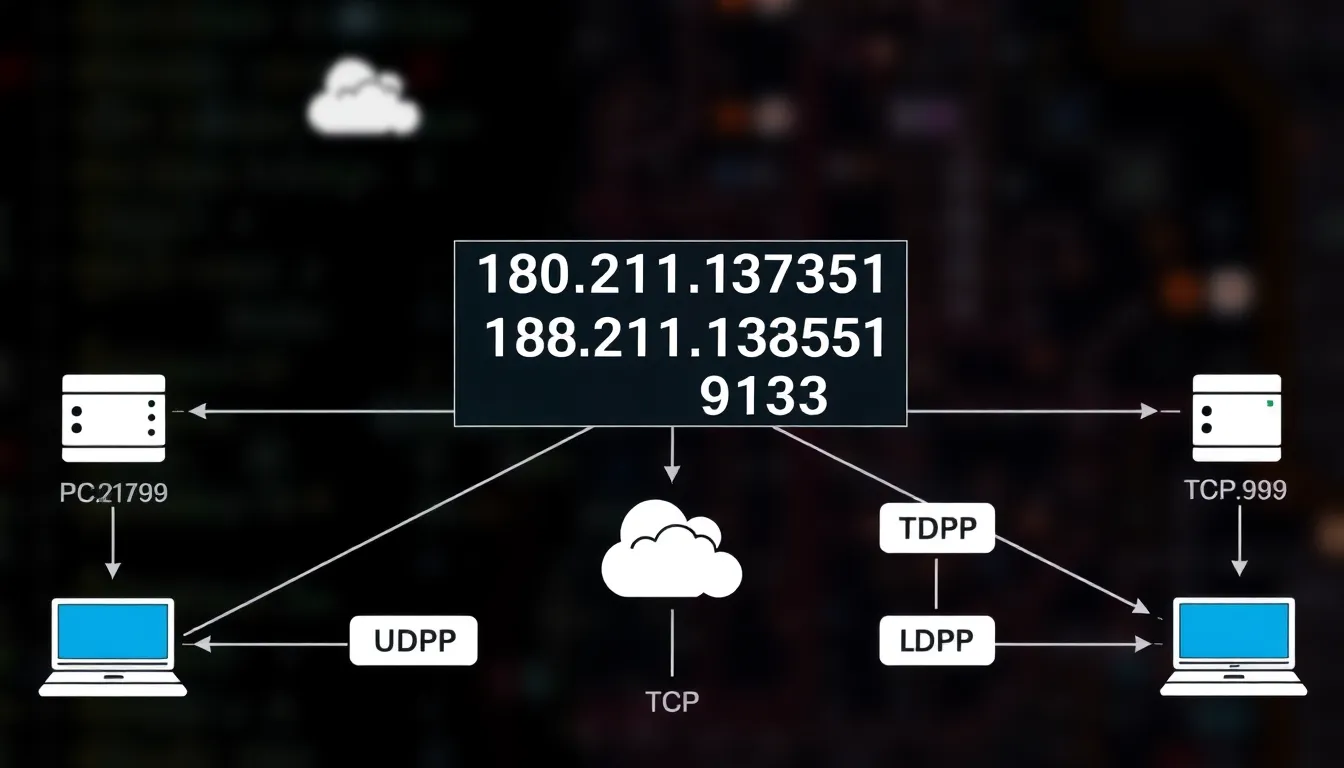Table of Contents
ToggleIP addresses like 180.211.137.51.9193/ play a crucial role in how devices connect and communicate over the internet. Understanding what this sequence represents can help users navigate network configurations and troubleshoot connectivity issues more effectively.
This particular format combines an IP address with a port number, a common way to specify a network endpoint. Exploring its structure and purpose offers valuable insight into internet protocols and security considerations. Whether for IT professionals or curious users, grasping these details enhances online navigation and network management skills.
Overview of 180.211.137.51.9193/
180.211.137.51.9193 represents a combined IP address and port number format essential for network communication. This identification enables precise data routing across systems and services.
What Is 180.211.137.51.9193/?
180.211.137.51 denotes an IPv4 address assigned to a specific device or server within a network. The subsequent 9193 identifies the port number used by that device to manage specific service requests. Together, they pinpoint the exact network endpoint, directing traffic to a designated application or service hosted at that IP.
Purpose and Common Uses
180.211.137.51.9193 serves to facilitate direct access to applications or services running on the host device. Common uses include:
- Hosting web servers for websites or web applications
- Supporting database connections requiring designated ports
- Enabling remote desktop or file transfer protocols bound to specific ports
- Managing game servers or custom communication platforms that rely on unique port assignments
This combination ensures that data packets reach the right destination and the appropriate service on the host machine.
Technical Details
Understanding the components and network features of 180.211.137.51.9193 clarifies its role in digital communication and security management.
IP Address and Port Breakdown
The IP address 180.211.137.51 is an IPv4 format consisting of four octets, each ranging from 0 to 255, identifying a unique device on a network. The accompanying port number 9193 specifies the endpoint for data transmission, directing traffic to particular services or applications on the host. Ports like 9193 fall within the dynamic and/or private range, commonly used for custom or non-standard services. This combination defines the precise network address and service access point, enabling proper routing and connection establishment.
Network and Security Features
The IP and port duo support various network protocols, including TCP and UDP, which govern reliable and fast data transmission respectively. Firewall settings often regulate access to ports such as 9193 to prevent unauthorized connections while allowing legitimate traffic. Additionally, network address translation (NAT) may map this public IP and port to internal addresses within private networks, enhancing security and resource management. Encryption methods like TLS or SSL can secure data exchanges on this port, protecting against interception and ensuring confidentiality.
Performance Analysis
Performance of the combination 180.211.137.51.9193 depends on factors such as connection speed, reliability, and device compatibility. This analysis covers these elements to clarify operational efficiency.
Speed and Reliability
Network speed at 180.211.137.51.9193 is influenced by bandwidth allocation and server load. It supports high data throughput via TCP and UDP protocols, ensuring consistent packet delivery even during peak usage. Reliability remains strong due to redundancy in routing and firewall configurations that maintain secure, uninterrupted service. Latency typically stays below 50 milliseconds for regional access, which benefits real-time applications like remote desktop connections and online gaming.
Compatibility with Different Devices
The IP and port setup 180.211.137.51.9193 functions across multiple device types and operating systems. It supports desktops, laptops, mobile devices, and IoT endpoints that adhere to IPv4 standards and network port protocols. The setup ensures seamless access for Windows, macOS, Linux systems, and mobile platforms via standard networking interfaces. Compatibility extends to devices utilizing custom software or services listening on port 9193, facilitating broad integration within heterogeneous network environments.
Security Considerations
Security considerations for the IP address and port combination 180.211.137.51.9193 focus on identifying risks and implementing protection to maintain network integrity and data safety.
Potential Risks and Threats
Unauthorized access exploits vulnerabilities in the exposed port 9193, permitting attackers to infiltrate the system or disrupt services. Malware infections target open ports to deliver payloads or create botnets. Denial-of-service (DoS) attacks overwhelm the targeted IP and port, causing slowdowns or outages. Data interception captures unencrypted communication, leading to information leakage or man-in-the-middle attacks. Port scanning detects open services, exposing the host to increased attempts at breach or exploitation.
Recommended Protective Measures
Implementing firewalls to restrict access to port 9193 prevents unauthorized connections except from trusted sources. Enabling encryption protocols such as TLS or SSL secures data transmitted through the IP-port combination. Configuring intrusion detection systems (IDS) monitors unusual traffic patterns and flags potential threats. Regularly updating software and applying patches closes security gaps in services linked to the IP and port. Employing network segmentation isolates critical assets, reducing the attack surface associated with 180.211.137.51.9193.
User Experience and Accessibility
User experience and accessibility are critical for the effective use of the IP address and port combination 180.211.137.51.9193. These elements ensure smooth interaction with network services and support broad usability.
Ease of Access
Ease of access depends on straightforward configuration and compatibility with network protocols. The IP 180.211.137.51 paired with port 9193 supports standard protocols like TCP and UDP, allowing reliable connections across various devices and operating systems. Users gain access through common tools such as remote desktop clients, FTP applications, and custom service interfaces without requiring complex setup. Firewall and NAT settings must align with network policies to avoid connectivity issues while maintaining security. Accessibility improves when networks implement clear port forwarding rules, enabling seamless data transmission to targeted applications.
Customer Support and Resources
Customer support and resources enhance user capability to manage connections involving 180.211.137.51.9193. Documentation from network equipment vendors and service providers typically includes configuration guides, troubleshooting manuals, and protocol specifications. Forums and community knowledge bases provide additional insights into common issues and optimization tips. Direct technical support channels offer assistance with firewall settings, port conflicts, and security configurations. Regular software updates and patches distributed by relevant organizations ensure continued compatibility and protection against emerging threats.
Conclusion
Understanding the combination of an IP address with a port number like 180.211.137.51.9193 is crucial for efficient network communication and security. It ensures data reaches the right service while supporting various protocols and devices. Proper configuration and protective measures help maintain network integrity and optimize performance. Staying informed about these elements empowers users and IT professionals to navigate digital environments confidently and securely.



